Audrey's childhood in Kerikeri
(Chap. 3)
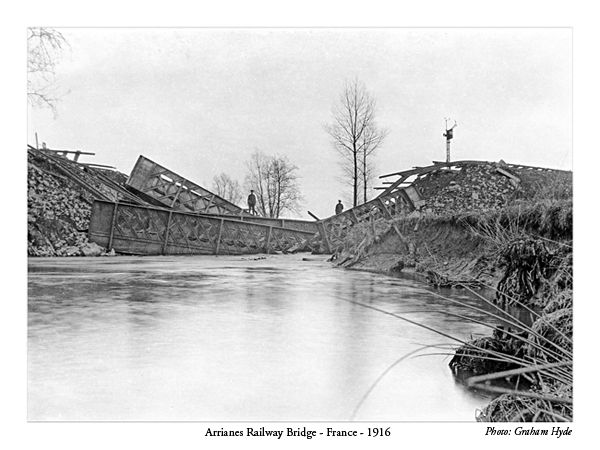
Audrey's childhood in Kerikeri
|
|
JOAN HYDE'S ELDEST DAUGHTER, AUDREY,
STORY OF HER CHILDHOOD IN KERIKERI
Chap. 1: Early Day's in Kerikeri Chap. 2: Coolalie and Twins Chap. 4: Early School Days Chap. 5: N.Z. Friends School Chap: 6: Rivervale School and Pony Club Chap. 7: Marist Convent Chap. 8: Northland College Appendix I: David on "Life in Kerikeri" Appendix 2 - Coolalee's sale tender document Index for this page:
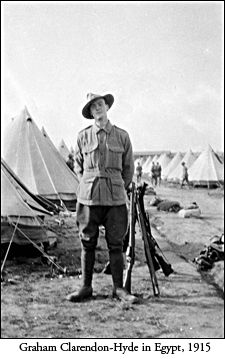
W.W.2 broke out and our Father tried to enlist to go overseas. He approached the officials and was furious when they turned him down because of his age (He was 47) and another impediment was the fact that he had three children under the age of five. Dad was a born soldier and should have stayed in the Army after the First World War, but at that time, one had to have money to keep a commission so he had to be demobbed at the end of the war. Being turned down by the N.Z. Army, for service overseas, was a bitter blow to him. I think the seeds of his dislike for New Zealand could have started then. 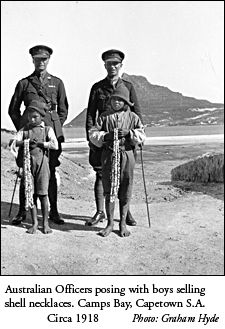
In 1941 he managed to enlist at KawaKawa, for a position in the Temporary Regular Staff of the N.Z. Army, but after attestation on the 4th April 1941, he wasn’t called up until about 5th September, and was placed into the No 2 Troop, No 1 (Northland) Squadron of the Independent Mounted Rifles, otherwise known as the I.M.R., based in Whangarei. The authorities did not recognize his officer ranking, he had in W.W.1, so he started out in the I.M.R. as a Trooper and then he was given the rank of Sergeant once the officials had received his past records from Australia. His service number was 1/23/164 until the end of 1942 and then he was given the number 802875. I have his service record, and after three months in Whangarei, he was based in camps all over the Bay of Islands. On the 21st September he was admitted to the Whangarei Hospital, for about three weeks, but I have no record as to why. At the end of 1942 he was a Pay Sergeant, although his branch of expertise was in ballistics; however on 23rd February 1943 he was transferred to the army camp in Papakura to train the new recruits, in ballistics, before they were sent overseas to fight. He enjoyed this part of his time in the Army but for some reason, before the end of the year, he was discharged. There is nothing in his records to suggest why he was discharged, because the war had another couple of years to go but we do have our theories. He was a changed man, when he came home, becoming uncontrollably violent towards Mum and myself, of which I shall write about later. 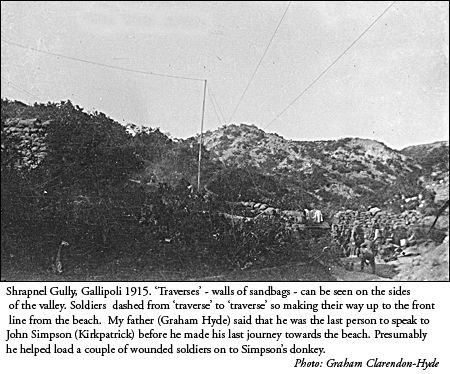
During the war, while Dad was away, Mum had a very hard job raising us; running the orchard on her own and also milking the cows, morning and night. By the time we were five we could milk docile Polly, but not bad tempered Sally, and separate the cream ourselves, so that must have been a bonus for Mum. We children never wanted for anything because we had the cows; four hens; loads of fruit trees and a vegetable garden so rationing didn’t affect us very much. Mum only had to buy the basics; flour, sugar and meat with the ration cards. In the autumn Riddell’s paddocks would be white with mushrooms and we would pick them by the bucketful. We all enjoyed this chore but by the end of the season would be heartily sick of them. The modern cultivated mushrooms will never have the same rich taste of those wild mushrooms, but unfortunately, the up-to-date fertilisers etc have put an end to those prolific crops of mushrooms we would pick in the paddocks. I guess it is called 'progress!' One day we overheard Mum lamenting to someone that the hens weren’t laying any eggs, so we decided to make Mum happy. We all sneaked through the hedge to Maraea and Ken’s henhouse. They had a lot more hens than us and we didn’t think they would miss a few eggs. We stole four eggs each and put them into our henhouse, thinking we had done a good deed for our Mum. However we were soon to learn that hens only lay one egg a day, not four, and poor Mum had to go and apologise and return to the eggs to Maraea and Ken because of her thieving little devils!
Mum wrote many notes relating to the funny things we said as children, and I think they are worth including in this story
Dad had a radio that worked off a battery and every night Mum and Dad, if he was home on leave, would switch it on and listen to the B.B.C. news. Now and again we would listen, but all the news bulletins were about the war describing the bombing of London etc. Listening to the bulletins terrified us and whenever an aeroplane flew over our property we would run away and hide under Julia’s bed. The bed was a stretcher with a sacking base, and very dark underneath it, thus we felt safe! I can still see our parents trying to coax us to come out from under the bed to watch the planes flying above. We would have none of it and all cringed into the darkest corner!
We must have been rather impressed by Governments, maybe, because our parents often discussed Winston Churchill. Julia aged four, was overheard by Mum being very bossy with one of the cats:
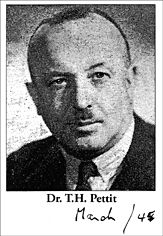
When Dad was based in Auckland we would travel down, by train, to see him about every second month. Sometimes we stayed at Royal Court with Aunt Dolly but once we stayed at the Criterion Hotel in Hobson Street. That particular time Julia had to go to a well known Auckland doctor, called Doctor Harold Pettit, to have her adenoids taken out. Doctor Pettit was a friend of Dad’s and he was a very keen deep sea fisherman. On this particular trip he took David and I, plus about 30 other children, to the pictures at the Civic theatre and that was the first film we ever saw. It was the new Disney film ‘Snow white and the Seven Dwarves’. After the picture show we were all taken to a large hall and both David and I can remember it was decorated with silver painted ferns. It certainly must have impressed us because we cannot remember why we were there but I guess, it may have been for treats of jelly and ice-cream etc. Auckland was full of American sailors and David and I were always stopped and given the long green bars of American chewing gum, which we were not allowed to have as far as our parents were concerned, and Mum was forever trying to give it back to the sailors. We loved the gum and sometimes would hurriedly chew it and swallow it before Mum caught us! It is a wonder we never got the guts ache! The sailors would give us two and sixpenny pieces, or half crowns as they were called, and tell us to buy some ‘candies’ Not very practical really because the shops never had any. That was a huge amount of money to us but Mum always found it! I think we reminded many of those sailors of their children they had left at home. Although we didn’t look alike they could see we were twins, and I with my long blonde hair, and David with his black hair, seemed to fascinate them. IV. Travelling between Auckland and KerikeriTwo of the return journeys from Auckland via the train, I remember well. Once floods in Hikurangi stopped the train from going any further and we were all loaded onto army trucks and taken into Whangarei where we stayed in a camp, for a couple of days, until the floods receded. On the army truck a boy from the train had a bowl of goldfish! Another time Mum was taking us off the train, at Whangarei, and I fell down off the platform onto the line beside the wheel of the carriage. Mum screamed and a burly man rushed over and pulled me out by my plaits! 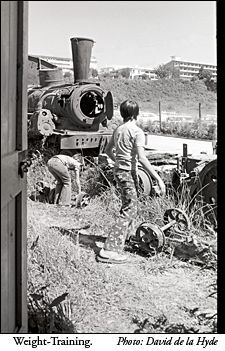
Nowadays people talk nostalgically of steam trains but really they were filthy things and the smoke would pour in at every tunnel. By the time you got home you would blow soot out of your nose for days, it seemed, but the trains were the most economical way to get to and from Auckland because the roads were so dreadful going north. There were two main routes out of the city, to the North; one was via car ferry across to Devonport, and the other route was an extra 45 miles around the upper harbour via Whenuapai and Riverhead. Dad usually chose the ferry route. I always felt a little frightened on this car ferry because all that prevented us from going overboard, was a rail covered in Hessian sacking. Some mischief-maker had told me that a car had gone overboard once, so that added to my fear and I was always very thankful when terra firma was reached. From Albany onwards it was dirt roads except for Whangarei or when you arrived at the odd town, like Kawakawa, where there may be a strip of tarseal in the main street. The worst stretch, I always felt, was at Puketona junction which was always a mass of potholes no matter how many times they put the grader over it and going over 'The Turntable' near Moerewa was not much better. Just as well the maximum speed for cars, then, was about 40 miles an hour. The trip from Auckland to Keri Keri, by car, would take all day and we would be so pleased to get to Emanuel’s corner knowing it wasn’t far before we reached home. Julia used to get car sick but David and I didn’t, however, I did get train sick a few times. V. David can do no wrongWhile Dad was away Mum would read us a story before we went to sleep. One she read to us was about getting rubber from trees. This must have fascinated David because he conned Julia and I into joining him in ringbarking all of Dad’s row of precious olive trees, he had planted along the side of the orange orchard, in the expectation of getting rubber!! 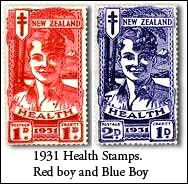
David could never do anything wrong, in Dad’s eyes, and he would call David, ‘my little boy blue’ right up until David grew up which caused David huge embarrassment. Dad thought Julia was too young to think of these naughty things so I would get the blame, many times, for David’s and Julia’s misdeeds. Dad would say to me that I should know better and not lead Julia into doing naughty things. At times I wouldn’t even be there when she was naughty, but she would say, “Audrey made me do it,” so I had a no-win situation because whatever I said Dad would not believe me, and if I tried to open my mouth the result would be another hit into some other part of my body! Years later, after Dad died, I asked Mum why and she told me that Dad was convinced I would be a twin boy, before we were born, because his two brothers were twin boys and his great grandfather had a twin brother, thus, he was very disappointed when I came along. Dad had an unfortunate incident with a blonde girlfriend years earlier and he took an intense dislike to blondes!! Oh boy, I was in a ‘catch 22’ situation because I was a girl and flaxen blonde as well. However Mum also got bashed around, many times, for very trivial reasons. VI. Father's behavioural change on returning from the Army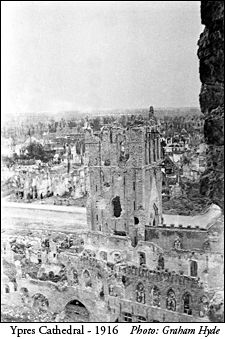
This ‘behaviour’ of Dad’s started after he came home from the I.M.R. I now think that not only did he need psychiatric attention but the effects of his five years fighting in Gallipoli; on the Somme; at Pachendale, in W.W.1; plus many other areas of combat, and the many traumatic experiences he had over the years, for instance, losing his land etc, caught up with him. These days this sort of stress is called ‘battle syndrome’ but in the 40’s it was not recognised. I am not making excuses for him beating Mum and me, but having written his biography has helped me to ‘understand’ the man. I was terrified of him right up until my mid-forties, and then I actually had the nerve to answer him back one day. He never spoke to me for days after this episode, but at last I realized I had overcome my fear of him and we seemed to get on a lot better after that. I knew of one other family who had a similar situation, with their father, and I am sure that in many of those fine homes behind the huge hakea hedges with so called 'refined' people living in them , a lot of children and wives, could have suffered some problem fathers but I sincerely hope not! 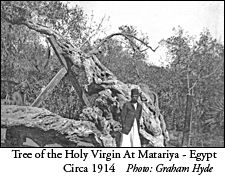
After Dad passed on Mum and I occasionally talked about this problem and I could see why she stayed. She not only loved him but also feared him, and felt sorry for him having these uncontrollable, violent outbursts of rage. She could see that he was very sorry for what he had done, after the event, but he could never bring himself to apologise to us for some strange reason. He had lost contact with most of his family, when he came to N.Z. hence, I guess, he also had no one to turn to. 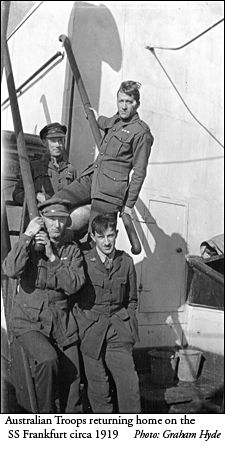
She had no relatives in N.Z. so couldn’t turn to them, and what’s more she wouldn’t because her aunts, uncles, and cousins tried to stop her from leaving England and marrying Dad in the first place. I guess she wanted to keep her pride and so she just put up with the situation. No welfare payments or women’s refuges in those days, and I am sure some would say she was foolish to stay with him, but put yourself into her shoes. Her money had gone into the land; she was in a foreign country with all her old and trusted friend’s and relations 12,000 miles away; and she had three young children to look after. She was a non-driver so it would have been no easy task for her to get to Otiria; catch the train to Auckland and then go by boat for six to eight weeks back to England, with us in tow! Also divorce had a stigma to it, and she knew all about that, because her parents divorced in the early 1900’s when she was very young. 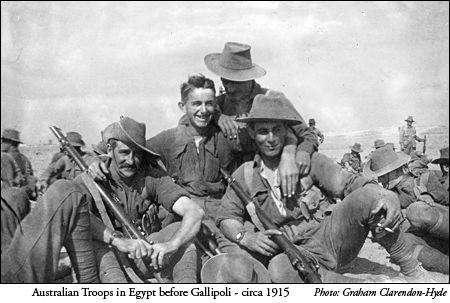
|
|
|
|
|
|